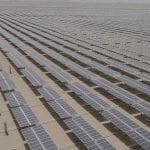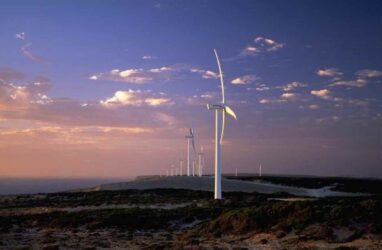Feed aggregator
China on track to triple its terawatt-scale wind and solar target
 Goldman Sachs report forecasts combined capacity from China solar and wind will far outstrip the government’s current 2030 target of 1.2TWh.
Goldman Sachs report forecasts combined capacity from China solar and wind will far outstrip the government’s current 2030 target of 1.2TWh.
The post China on track to triple its terawatt-scale wind and solar target appeared first on RenewEconomy.
CP Daily: Tuesday April 4, 2023
Carbon Trader, DelAgua – London/Singapore
Massachusetts initiates stakeholder process to operationalise Clean Heat Standard
States benefit from continuous RGGI membership -report
Offset registry launches defence of forest carbon methodologies that academics found flawed
Load shifting and energy spills: Secrets to smarter grid dominated by wind and solar
 Energy efficiency, demand management, load shifting, electrification. These are all terms that have been around for a decade of more, but they are suddenly gaining a new importance as customers, regulators, and policy makers seek smart solutions to a grid dominated by wind and solar. A major new report – Clean Energy, Clean Demand – […]
Energy efficiency, demand management, load shifting, electrification. These are all terms that have been around for a decade of more, but they are suddenly gaining a new importance as customers, regulators, and policy makers seek smart solutions to a grid dominated by wind and solar. A major new report – Clean Energy, Clean Demand – […]
The post Load shifting and energy spills: Secrets to smarter grid dominated by wind and solar appeared first on RenewEconomy.
Monsters or masters of the deep sea? Why the deepest of deep-sea fish aren't as scary as you might think
Clean cookstoves need a carbon price of $10, says project developer
Canadian VER investor working to execute deal for reforestation carbon removal project
Government has a duty to be transparent about climate security risks, even if shocking
 Why has the federal government not released a climate security report from the intelligence community? Was the government shocked by what it was told?
Why has the federal government not released a climate security report from the intelligence community? Was the government shocked by what it was told?
The post Government has a duty to be transparent about climate security risks, even if shocking appeared first on RenewEconomy.
COMMENT: Four things holding back the voluntary carbon market
Bringing road transport, buildings into main EU ETS could result in major climate policy cost savings, study finds
England’s automated flood alerts to be permanent despite inaccuracy warnings
Environment Agency says system trialled during strikes will continue for now despite false alarms and late warnings
The flood warning system relied on by hundreds of thousands of households in England will be put on permanent autopilot, officials have said, despite warnings it is inaccurate.
The Environment Agency has been trialling an automated flood warning system since December, when strike action by workers over years of below-inflation pay deals left gaps in incident rosters.
Continue reading...Thérèse Coffey accused of ‘throwing in the towel’ over sewage scandal
At launch of cleaner water plan, minister says those who say they can end problem are ‘detached from reality’ or dishonest
Thérèse Coffey has admitted she cannot end the sewage scandal, in what critics are calling a “complete abdication of duty”.
Launching her department’s cleaner water plan at the London Wetland Centre in Barnes in the south of the capital, the environment secretary said upgrading the sewage network to stop spills could add hundreds of pounds each to people’s bills.
Continue reading...


